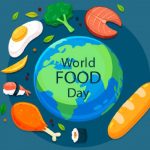As the world marks Earth Day, the Centre for Climate Change & Food Security (CCCFS) is sounding the alarm on the devastating impact of plastic pollution on the environment.
Available data indicates that, Ghana produces around 0.84 million tons of plastic waste each year, a number that is increasing by 5.4% annually. As the population grows, so does plastic waste, with a 2.2% increase each year. The amount of plastic consumed per person is also increasing by 3.4% each year. Despite efforts by the government, industry, and civil society, plastic waste in water bodies is expected to increase by 190% between 2020 and 2040. This means that plastic leakage will grow from about 78,000 tons per year to 228,000 tons per year.
Plastic waste has severe environmental impacts, including pollution of oceans and waterways, harm to marine life, and contribution to climate change. Moreover, some of this plastic waste eventually enters the food chain, posing a significant risk to human health. When plastic debris breaks down into smaller pieces, known as microplastics, they can be ingested by small marine animals, which are then consumed by larger animals, and potentially even humans. This means that plastic pollution has the potential to contaminate the food we eat, leading to harmful health consequences.
CCCFS is drawing inspiration from India’s successful adoption of ceramic materials for drinking water, particularly in states like Rajasthan, emphasizing the need for a return to traditional, sustainable practices.
In Ghana, the use of ceramics was once prevalent in the northern parts of the country and the centre believes that reviving this practice could significantly reduce Ghana’s reliance on plastics. However, CCCFS is also worried that many Ghanaians remain unaware of the harmful effects of plastic waste, which is why drastic reductions in plastic production by petrochemical companies are urgently needed.
“The impact of plastic pollution on our environment, our health, and our economy cannot be overstated,” Executive Director, Engr Mahmud Mohammed-Nurudeen said. “We must take immediate action to reduce plastic waste and adopt sustainable practices. We owe it to ourselves, our children, and future generations to act now.”
CCCFS is calling on petrochemical companies, policymakers, and individuals to join forces in the fight against plastic pollution. Together, we can make a difference and create a cleaner, healthier, and more sustainable future for all.
Thank you.
Engr Mahmud Mohammed-Nurudeen
Executive Director
CCCFS





